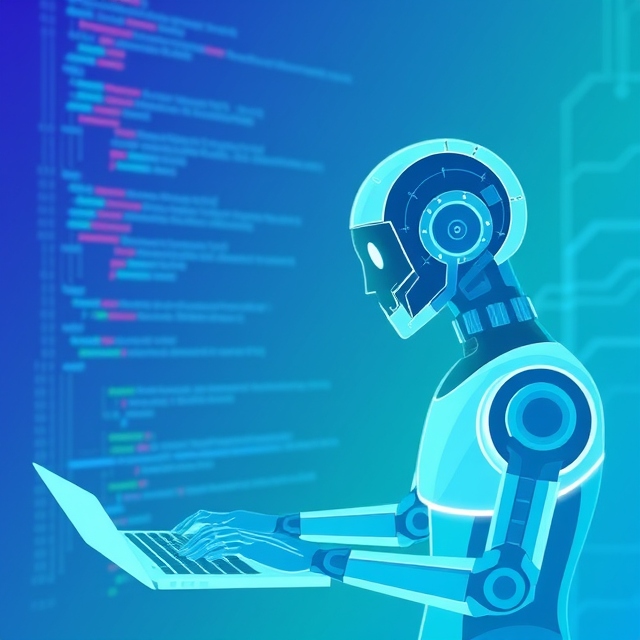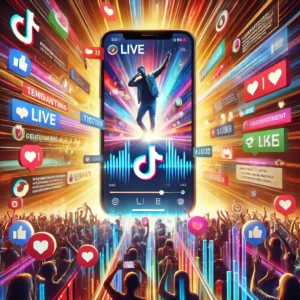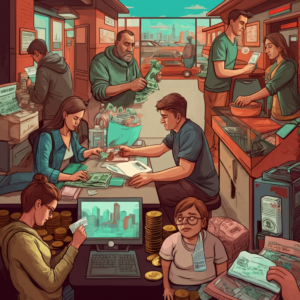AI code assistants are smart tools powered by artificial intelligence that help developers write better code faster. These tools understand what developers need and offer suggestions, fix errors, and even generate code on their behalf.
They make programming easier by automating repetitive tasks, finding bugs, and improving code quality. With the power of AI, these assistants can even understand simple instructions and write code based on them.
How They Enhance the Software Development Process in 2025
In 2025, AI code assistants are revolutionizing the way software is developed. They allow developers to be more efficient by reducing the time spent on routine tasks like writing basic code or fixing simple errors. AI tools speed up the development process, help avoid common mistakes, and ensure higher-quality code. This results in faster project timelines and improved accuracy, giving developers more time to focus on creative and complex aspects of their work.
The Role of AI Code Assistants in Modern Development
AI code assistants are changing how developers approach coding, debugging, and testing. These tools offer real-time help in the following ways:
- Coding:
AI tools can suggest complete lines of code or fix errors instantly, making the coding process faster and smoother. - Debugging:
AI tools automatically scan code for mistakes and offer fixes, saving time that would otherwise be spent looking for bugs. - Testing:
AI assistants help generate and run tests to ensure the code is working correctly and identify any hidden issues.
Why They Are Becoming Essential in Software Development Teams
AI code assistants are becoming a must-have for modern software development teams because they bring many benefits:
- Boost Productivity:
With AI handling repetitive tasks, developers can focus on solving bigger challenges. - Better Code Quality:
AI’s ability to find and fix errors improves the overall quality of the code. - Save Time and Costs:
Automating tasks means less time spent on manual work, which keeps projects on track and within budget. - Improved Collaboration:
AI helps maintain consistent coding practices across teams, making it easier for developers to collaborate on projects.
As the demand for faster, more reliable software grows, AI code assistants are becoming essential tools for success in the software development industry.
Why AI Code Assistants Are Important in 2025
The Need for Faster, More Efficient Coding
In 2025, the demand for faster software development is higher than ever. With companies needing to release updates and new products quickly to stay competitive, developers must work at an accelerated pace. AI code assistants are vital in this context as they significantly reduce the time required to write, debug, and optimize code. These tools streamline the coding process by automating repetitive tasks, suggesting optimizations, and even generating code snippets, allowing developers to focus on higher-level thinking and problem-solving. The faster a development team can build and test their software, the quicker they can meet market demands and respond to customer feedback.
How AI is Helping Reduce Human Error and Increase Productivity
Human error is inevitable in software development, but AI code assistants help minimize mistakes. By automatically detecting syntax errors, suggesting corrections, and even finding bugs that developers might overlook, these tools ensure higher code accuracy. AI assistants also provide suggestions for best practices, improving code readability and consistency. This reduction in errors leads to fewer bugs and lower maintenance costs in the long run.
AI also boosts productivity by helping developers write code faster. For instance, instead of manually typing out every line of code, developers can use AI-powered suggestions to complete functions quickly and correctly. Additionally, AI tools can integrate with existing codebases, making it easier for developers to reuse previously written code and avoid redundant work. The time saved through automation allows developers to focus on more complex tasks, accelerating the entire development lifecycle.
How AI Code Assistants Work
The Technology Behind AI Code Assistants
AI code assistants are built using several advanced technologies, most notably machine learning (ML) and natural language processing (NLP). Machine learning enables these tools to learn from large datasets of code, allowing them to make intelligent predictions and suggestions based on patterns they’ve recognized. NLP, on the other hand, allows the assistants to understand natural language instructions, making it easier for developers to interact with the tool. For example, a developer might ask an AI assistant to “create a function that sorts an array,” and the assistant would be able to generate the necessary code.
These tools are also integrated with deep learning algorithms, which help them improve over time. As the assistant encounters more coding examples and user inputs, it becomes better at understanding the context and providing more accurate solutions.
Examples of Popular AI Coding Tools in 2025
There are several AI-powered tools that have become popular in 2025 for assisting with code generation, debugging, and optimization:
- GitHub Copilot:
GitHub Copilot is one of the most well-known AI code assistants, powered by OpenAI’s GPT-3 model. It can suggest entire lines of code or complete functions based on a brief description from the developer. It supports multiple programming languages and integrates with popular code editors like Visual Studio Code. - Tabnine:
Tabnine is another AI-driven tool that focuses on increasing coding speed and accuracy. It uses machine learning models to predict and suggest the next block of code. Tabnine can integrate with popular IDEs (Integrated Development Environments) and can be customized to match specific coding styles. - IntelliCode (by Microsoft):
IntelliCode, built by Microsoft, is a set of AI-assisted features within Visual Studio and Visual Studio Code. It analyzes a developer’s code and offers recommendations based on the code context. It’s particularly useful for refactoring and ensuring best practices in code writing. - Kite:
Kite is a coding assistant that provides autocompletions and suggestions based on machine learning. It works with Python and JavaScript and is designed to speed up the coding process while also reducing the need for context switching. - Codex by OpenAI:
Codex is another AI tool by OpenAI, designed to write code based on simple natural language commands. It supports over a dozen programming languages and has applications in automating repetitive tasks and code generation for a variety of projects.
These tools, powered by advanced AI, provide developers with significant assistance in generating high-quality code faster and more efficiently. As AI continues to evolve, these tools are likely to become even more capable, providing greater support throughout the software development lifecycle.
Benefits of AI Code Assistants for Developers
Saving Time and Effort in Writing Code
One of the biggest benefits of AI code assistants is the significant amount of time and effort they save developers. Writing code can be time-consuming, especially for repetitive tasks or when trying to find the right syntax or function. AI tools eliminate much of this time by offering real-time suggestions, auto-completing lines of code, and even generating entire functions or classes. This allows developers to focus on more complex tasks, such as problem-solving or designing the architecture of an application, rather than manually writing every line of code. Over time, this time-saving aspect greatly improves productivity and accelerates project completion.
Making Coding More Accessible to Beginners and Non-Programmers
AI code assistants are also making programming more accessible to those who may not have extensive coding experience. Beginners or non-programmers can benefit from these tools because they offer guidance and suggestions in real time, helping users learn and understand the structure of code. These tools can fill in gaps in knowledge by suggesting commonly used patterns, functions, and best practices. For non-programmers, AI assistants can take complex tasks and break them down into simpler, more digestible steps, making it easier for them to get started with coding. As a result, people without a formal programming background can experiment, learn, and even build applications more easily than before.
Future of AI Code Assistants: What’s Next?
Predictions for Future Advancements in AI Coding Tools
As AI technology continues to advance, we can expect even more powerful and intelligent code assistants in the future. Some of the key areas for improvement and innovation include:
- Deeper Contextual Understanding:
AI assistants will become better at understanding the entire context of a project, not just the immediate lines of code. This will enable them to offer smarter suggestions and provide more accurate code optimizations based on the overall structure of the codebase. - Improved Multilingual Support:
In the future, AI code assistants will be able to support even more programming languages and frameworks, allowing developers to work seamlessly across different environments. These tools will not only understand popular languages like Python, JavaScript, and Java, but also specialized languages and tools used in niche industries. - AI-Powered Refactoring:
AI assistants may become more adept at helping developers refactor code, ensuring that the code is not only functional but also efficient and maintainable. This could include suggesting better algorithms, improving readability, and optimizing performance. - Collaborative AI:
In the future, AI assistants could work more collaboratively with human developers, learning from their code preferences and coding styles. This will lead to more personalized recommendations and a more seamless integration with development workflows. - Enhanced Error Detection and Debugging:
Future AI tools will likely be able to detect errors not just in syntax, but in the logic and flow of code. By analyzing patterns and identifying potential flaws early on, AI will significantly reduce the time spent debugging and testing.
How AI Will Continue to Shape the Software Development Landscape in 2025 and Beyond
AI code assistants will continue to evolve and play a central role in shaping the future of software development. In 2025 and beyond, AI will likely be integrated even further into the development lifecycle, automating more than just coding. Here’s how AI will continue to make an impact:
- Faster Software Development:
As AI tools improve, they will further accelerate development cycles. They will enable faster prototyping, quicker bug fixes, and more efficient coding, which will be crucial for businesses aiming to keep pace with rapid technological advancements. - Smarter Collaboration and Code Review:
AI tools will assist with code reviews, helping teams maintain consistency, enforce coding standards, and identify potential issues in collaborative projects. AI could also act as an additional “pair programmer,” offering suggestions and providing real-time feedback during group development sessions. - Enhanced Integration with Other Tools:
AI code assistants will integrate more deeply with other development tools, like version control systems, testing frameworks, and project management tools. This unified approach will streamline the entire development process, making it more efficient from start to finish. - Adapting to New Technologies:
As new programming languages, frameworks, and paradigms emerge, AI code assistants will adapt, learning how to provide useful suggestions for cutting-edge technologies. This will ensure that developers have the necessary support to work with the latest innovations in the tech world. - More Personalized Developer Experience:
As AI assistants continue to learn from user interactions, they will become more personalized, adapting to the developer’s specific needs, preferences, and coding style. This will make the development process more intuitive and tailored, further enhancing productivity.
In conclusion, AI code assistants are set to revolutionize the software development landscape in the coming years. As they become more advanced, these tools will not only enhance coding efficiency but also redefine the way developers approach coding, debugging, and testing. With AI leading the charge, the future of software development is faster, smarter, and more collaborative than ever before.
Challenges and Ethical Considerations
Addressing Concerns About Over-Reliance on AI
As AI code assistants become more advanced and widely adopted, one of the primary concerns is the potential for over-reliance on these tools. Developers might begin to lean too heavily on AI, trusting it to write code, fix errors, and handle complex tasks without fully understanding the underlying logic. This can lead to a loss of coding skills and a reduced ability to problem-solve manually. Over-reliance could also lead to blind spots, where developers might overlook mistakes or fail to recognize opportunities for improvement because they trust the AI too much.
To mitigate this, developers must maintain a balance between using AI tools for efficiency and continuing to enhance their coding skills. AI should be seen as an assistant, not a replacement for human expertise. Developers must also engage with the code at a deeper level, ensuring they understand the suggestions made by AI and can make adjustments when necessary.
Balancing Automation and Human Creativity in Development
While AI tools can handle repetitive tasks and provide valuable suggestions, human creativity is still essential in software development. Automation can streamline certain processes, but it cannot replace the creativity, intuition, and problem-solving abilities that humans bring to coding. Developers are often required to think critically about complex problems, design user-friendly interfaces, or craft innovative features. AI, on the other hand, excels at repetitive, rule-based tasks but struggles when it comes to thinking outside the box or solving new problems that haven’t been encountered before.
The key challenge is finding the right balance between automation and human creativity. While AI can assist in accelerating development and ensuring quality, it is important for developers to remain involved in the creative aspects of the process. They should leverage AI tools to free up time for more creative work, allowing for innovation, unique solutions, and a deeper connection to the project.
As AI continues to evolve, the future of development will likely involve a partnership between human developers and AI tools, where both complement each other’s strengths. Ensuring that human creativity and innovation are not overshadowed by automation will be essential for maintaining the integrity and originality of software development.
Conclusion: AI Code Assistants as the Future of Development in 2025
How AI Will Revolutionize Software Development in the Years to Come
In 2025, AI code assistants will play a transformative role in software development. By automating repetitive tasks, offering real-time suggestions, and improving code quality, these tools will dramatically speed up the development process. As AI continues to learn and improve, it will make developers more efficient, help reduce errors, and enable faster iterations. The future of software development will see AI as an indispensable partner, allowing teams to innovate, optimize workflows, and create better products in less time.
Why Developers Should Embrace AI Tools for Better Productivity and Innovation
Developers who embrace AI tools will experience significant productivity gains. By automating routine coding tasks, debugging, and testing, AI assistants free up valuable time for developers to focus on higher-level problem-solving and creative work. This allows developers to experiment with new ideas, explore innovative solutions, and build more robust applications. By incorporating AI into their workflow, developers can stay competitive in a fast-paced industry, delivering high-quality software while improving both the speed and creativity of their work.









